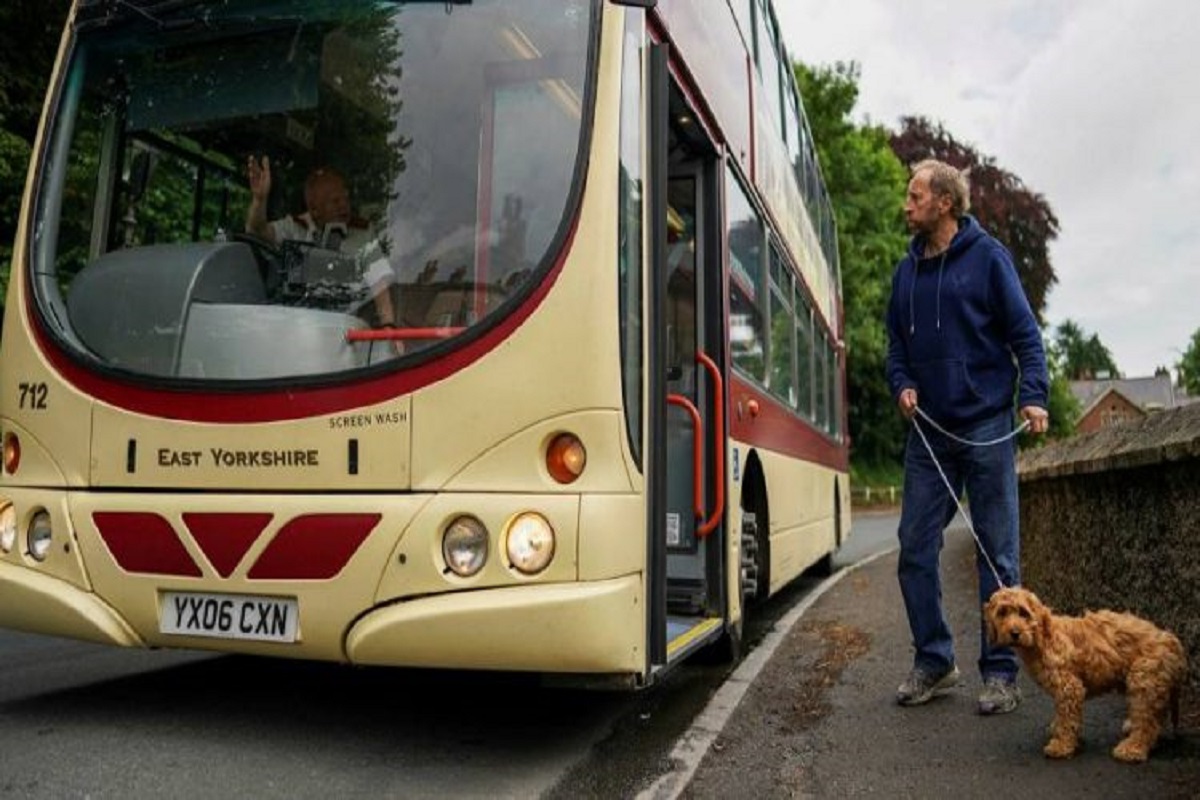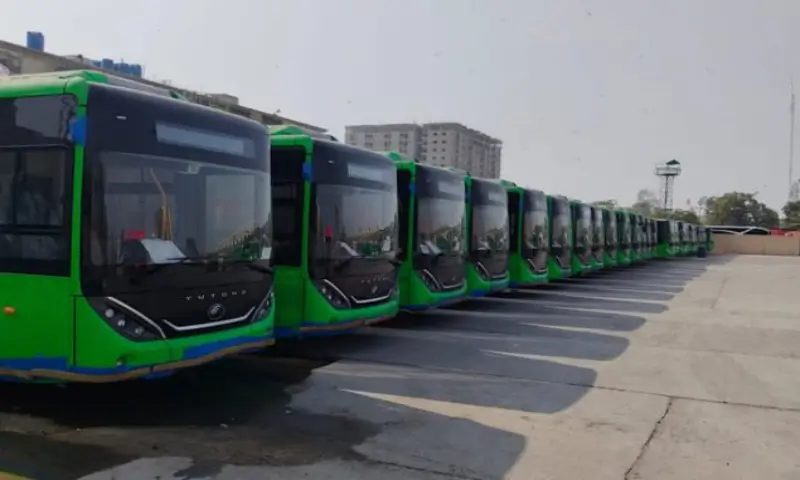Local leaders have warned that England’s bus networks might soon decrease by up to a third as commercial operators abandon unprofitable routes and government Covid subsidies end.
Ministers gave bus and light rail companies a bailout of £2 billion during the pandemic to keep them operating while ridership fell as more people stayed at home. But this support is anticipated to end in early October.
Before the bailout programme expires, the government has ordered transport companies and authorities to evaluate the viability of their networks. Many regions have already cut routes or are consulting on possible cuts.
Boris Johnson, the outgoing prime minister, promised to overhaul English bus services, claiming that the 30-year-old, deregulated system outside of London “isn’t working” and necessitated action to stop a steady decrease in passenger numbers.
Mayors and transportation campaigners warn that “devastating” service cuts are now imminent due to passenger numbers that are 20–25 percent lower than pre–pandemic levels in several places.
Local authorities in South Yorkshire think that up to a third of their network may be in jeopardy. Some routes that were retender this summer, according to Mayor Oliver Coppard, did not even receive bids from operators because they were deemed unviable.
[embedpost slug=”bank-of-england-defends-insurance-rule-reform-stance/”‘]
“It’s ridiculous that when the government says “we want a London-style bus system across the country,” [places like South Yorkshire] [will see] a third of its bus lines slashed,” said Oliver Coppard, the mayor of South Yorkshire. Jonathan Super/FT
“Honestly, it’s devastating. It’s really the only way to put it, said Coppard, who added that the local bus service was a “broken market” over which he currently had little control.
“It’s outrageous that regions like South Yorkshire, which should be exactly the kind of place they want to “level up,” are seeing a third of their bus lines slashed,” he added. “We want a London-style bus system across the country.”
The national bus plan was adopted by the government just before the pandemic began. Local communities were asked to submit bids for “transformation financing,” and those governed by mayors were offered the choice of switching to a franchised model a la London. By doing this, local authorities would have more control over routes and be able to cross-subsidize more profitable services with those that are less profitable.
West Yorkshire hopes to transition to this model, however mayor Tracy Brabin stated that 11% of services in the region were at risk in the interim. She urged the administration to continue providing the Covid subsidy past October. Additionally, she expressed her hope that the bus companies would recognise that this was a transitional phase and that they would have to shoulder part of the financial burden.
The bus operator Arriva UK Bus said the pandemic had created a “uniquely hard set of financial conditions for the bus sector,” and it had already reduced or halted certain routes in the region. He demanded ringfenced funds for underperforming routes.
Tracy Brabin, mayor of West Yorkshire, expressed her hope that bus operators would recognise that this was a transitional phase and that they would have to shoulder part of the financial burden. Image courtesy of Ian Forsyth/Getty
Paul O’Neil, managing director, stated that “we need to make sure communities are connected adequately to reflect post-pandemic patterns.” “Now that funding for the bus industry is running out, we need to find urgent new strategies to protect vital social services that can’t be run commercially.”
The bus business is in a “fragile position,” according to Huw Lewis, customer services director at Nexus, the transportation authority for northeast England, with 16% of routes having been lost since March. As government Covid-support to private operators eventually ends in October, he predicted that there would be additional layoffs.
He continued by saying that there is a driver shortage and strike activity in the industry. In West Yorkshire, the union Unite is organising a three-week strike over pay, and votes are being taken at a number of operators in the north west and Northern Ireland.
By operator Go-Ahead, a bus service that ran between York and the seashore was terminated. To save it, the local government had to intervene. Slawek Staszczuk/Alamy
First, which runs routes all throughout the nation, will keep the “bulk” of its networks, according to a spokesman, but all operators will need to “adjust” their offerings.
The Campaign for Better Transport’s Silviya Barrett, however, asserted that “every cut feeds into a vicious cycle, making buses less regular, less convenient, which discourages more people from using them and makes the entire network less feasible.”
Villagers in the East Riding of Yorkshire organised a campaign earlier this year after operator Go-Ahead cut a service that connected York with the seashore.
Even before the epidemic, the operator claimed that the route was losing £300,000 year “despite efforts to make it commercially viable.” The municipal government reinstituted a section and pledged to keep collaborating with operators.
However, Julian Woodford, a filmmaker who lives and works in the village of North Dalton, claimed that the locals were concerned that a “big question mark” still existed over the route.
“There will be more automobile use or more isolation if we don’t have that bus provision,” he claimed. Instead of thinking on how to generate money, “you have to create a service that actually serves the needs of the community.”
According to a representative for the Department of Transportation, the government invested in its National Bus Strategy and committed £2 billion to support services during the pandemic. “To maximise this investment, local authorities need to make sure that services are both commercially viable and take post-pandemic passenger demands into account,” he continued.
Financial Times, as a source
[embedpost slug=”india-crush-england-to-win-t20-series/”]





















